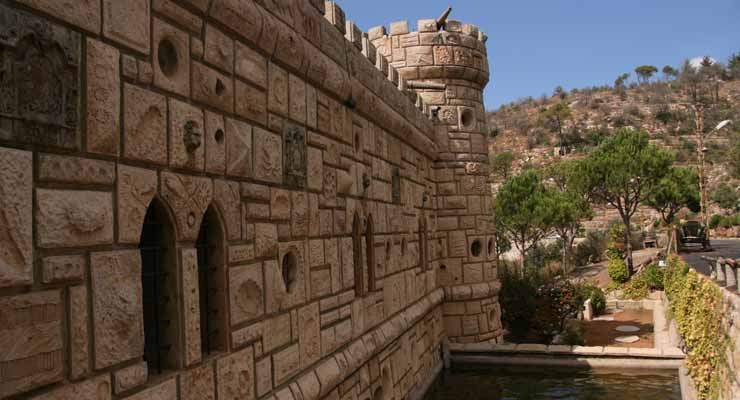the country’s profile and focus on niche segments that can open new avenues for tourism revenues.
As Mouawad explained, given the circumstances, endeavours are bearing fruits at a moderate pace.
“Doing this in a stable country would have been quadrupled [results],” added Mouawad, expressing her belief that Lebanon can be developed into a major player in tourism.
Saade echoed similar views.
“Lebanon has a great potential to develop and take its tourism industry further,” said Saade, revealing that Le Gray Beirut is in the process of adding a range of new facilities and rooms in a bid to appeal to MICE organisers.
At Gefinor Rotana, a number of outlets have already been turned into contemporary meetings and conference facilities in response to strong demand from the corporate and MICE segments.
In fact, as Kanawati noted, MICE business and extended stay are leading trends in the Lebanese tourism industry, thus the hotel’s focus on these segments.
As Massaad said, “The MICE segment has always been a good indicator of the local economic situation and the external business coming for that purpose.”
Exploring new areas is indeed of great importance, given the fact that as it was noted by Omar Mamlouk, managing partner, Phoenix Hospitality Management Limited, the company behind 1866 Court & Suites Beirut, Lebanon has for long relied on one kind of tourism, that being centered on sun, fun and nightlife. However, this segment is highly sensitive to seasonality, leaving only around four months per year for hoteliers and service providers to make business.
“That is why we need to expand […] and focus on additional sectors that are not related to certain times or seasons and can generate revenue throughout the year,” added Mamlouk, calling on industry stakeholders, as well as the government and relevant authorities, to take into consideration medical, cultural as well as educational tourism, which according to him, could bring even 10 times more in revenue.
As Massaad noted, an up-and-coming trend in Lebanon now is the visitation of journalists, bloggers and other explorers in pursuit of cultural, eco and other unique experiences. At the same time, wellness and medical tourism also remains a promising niche, added Royer, pointing to the countless hospitals and therapeutic centres available in the country.
“Lebanon has been famous for its advanced medical facilities, that are internationally accredited, throughout the years,” posited Royer.
Acknowledging the need to diversify both products as markets, the Ministry of Tourism remains keen on embarking on new projects and activities, as Massaad noted.
As a matter of fact, collaborative efforts are paramount if Lebanon is to regain its glorious title “The tourism industry is multifaceted and there are different needs to be addressed from airlines, [aviation authorities] in regards to open skies, hotel properties, beach and mountain locations and so on. Professionals can play a counseling role and be guides for the country,” said Nammour.
In the end, the situation is not as bad as it looks, emphasised Aline Ghanem, managing director, Exclusive Services Group, pointing to the crucial role professionals can play in supporting tourism’s growth. Though certain circumstances are out of the hands of industry stakeholders, they can and should still focus on the positive aspects and, while still keeping in touch with reality, showcase the best possible image of the country.
To convey a positive message, the ministry successfully embarked on the Live Love Lebanon campaign with the aim to highlight must visit places and must dos and showcase the country’s real image that is often disregarded in international media reports. Praising the initiative, Baiguera added, “Our part is to promote the destination, we are ambassadors of the country first and our [responsibility] is to promote it in all of our campaigns.”
Applauding the industry leaders’ efforts, Massaad, referred to another initiative, launched in coordination with the United Nations under the title The Phoenician Route, which as she explained, connects 14 million Lebanese in more than 18 countries around the world by inviting these generations to explore their homeland and roots.
“Reaching out to the Lebanese diaspora in Argentina, US, Brazil and other far away countries is also helping us a lot as well as the [penetration] of new markets, such as China,” said Massaad, emphasising the crucial role of individual hotels and industry professionals.
Yet, no one can really predict anything at the moment, suggested Rita Salamoun, director of public relations, Four Seasons Hotel Beirut.
“Things can change from day to day,” she said, adding that stability and security are paramount to the industry’s success.
Expressing a positive sentiment towards the future outlook of Lebanese tourism, Rudolph Karam, director of sales, Grand Hills A Luxury Hotel & Spa, Broumana, said, “The [industry’s] situation has been known as unpredictable for the last decade.
Nevertheless, Lebanon is also known to recover faster than any other country and this gives us strong hope.”
Lebanese people in general remain defiant and optimistic, noted Mouawad, adding “We always keep our hopes high that the next year is going to be better, knowing deep down that this might not be the case. However, as we say, positive attracts positive.”









